Mumbai, Jun 19: Normal life in Mumbai was today thrown out of gear as torrential rains battered the city and its suburbs resulting in cancellation of local train services leaving thousands of commuters stranded.
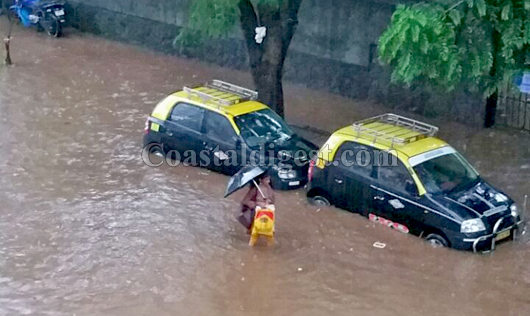
There seems to be no let up in the situation with the Meteorological Department predicting heavy to very heavy monsoon rains in some areas. In the early hours, thousands of commuters leaving for offices were caught unaware on reaching the suburban railway stations as trains were being cancelled due to water-logging of tracks following heavy downpour since last night.
As services on all three railway lines--Central, Western and Harbour--were cancelled, harried commuters rushed to catch buses, taxis or any other mode of transport available to reach their destinations, which resulted in massive traffic jams at many places, exacerbated by inundation in low-lying areas.
With Central Railway cancelling its services on CST-Thane section on the main line and Harbour line as well, commuters got stuck at suburban platforms. The Western Railway services which were initially running late by 10 to 15 minutes, were later cancelled.
The rains resulted in water-logging in almost all low-lying areas of Mumbai and its suburbs.
"Thane-Karjat/Kasara and Vasvhi-Panvel Shuttle services and trans-harbour services are running," said Central Railway PRO A K Singh.
"Our supervising staff are alert and as soon water level recedes, services would be resumed," he said. According to information given by the control room of Brihanmumbai Municipal Corporation (BMC), water-logging is reported in areas like Kurla, Chembur, Tilak Nagar, Andheri, Parel, Lower Parel, Thane, Navi Mumbai and Dombivili.
An IMD forecast at 0800 hours today said, "Intermittent rains/shower would occur in the city and suburbs. Heavy to very heavy rains would occur in some areas." The average rainfall recorded in 24 hours ending 8 AM today is -- City 188 mm, Eastern Suburbs 155 mm, Western Suburbs 172 mm while the high tide (4.47 metres) is expected at 2:29 PM.
According to a statement issued by BMC, as many as 120 suction pumps have been pressed into service to drain out water in low-lying areas.
Meanwhile, Civic Commissioner Ajoy Mehta appealed to citizens to not send their wards to school as heavy rains are predicted. "Very heavy rains are expected today. So I have issued advisory for school children to stay at home," he told PTI.
Sources said long distance trains are bunched up outside Mumbai as they are not getting signal to enter the city due to water-logging.
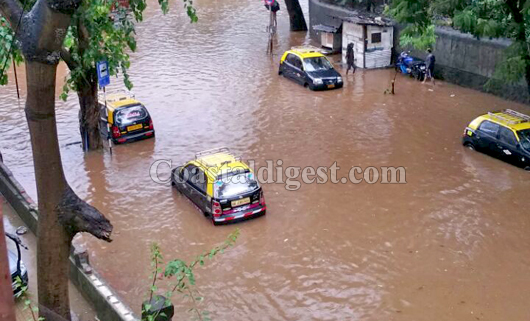
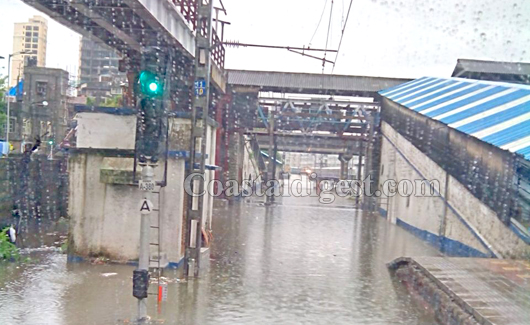
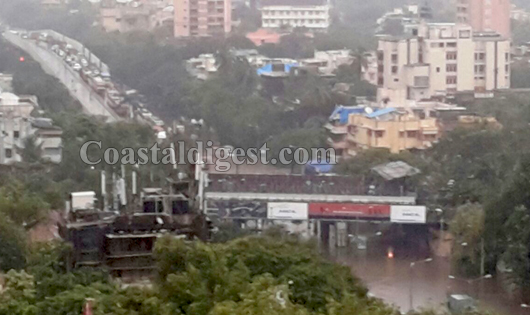

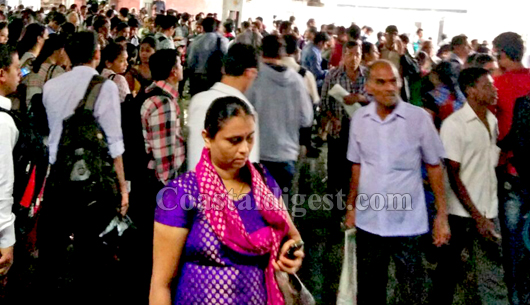



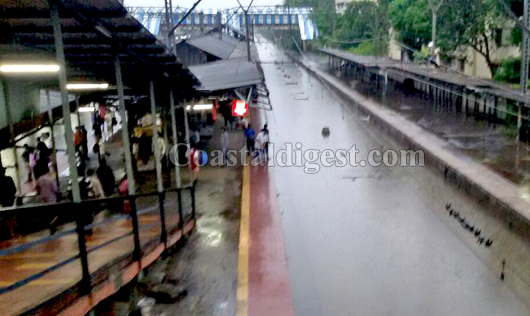

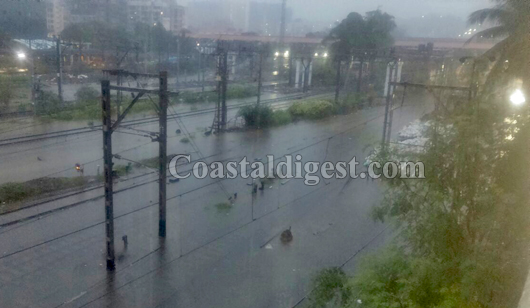
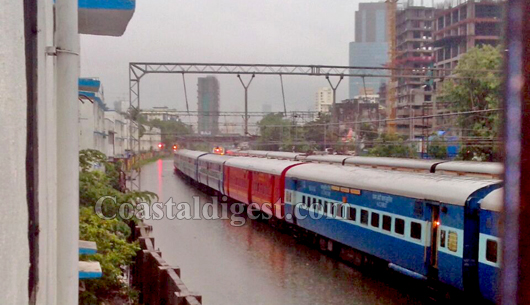





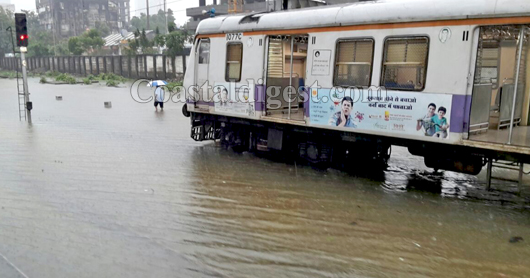

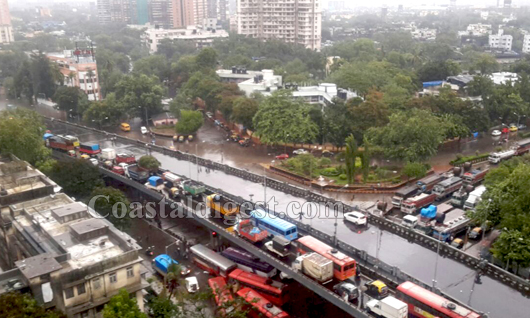
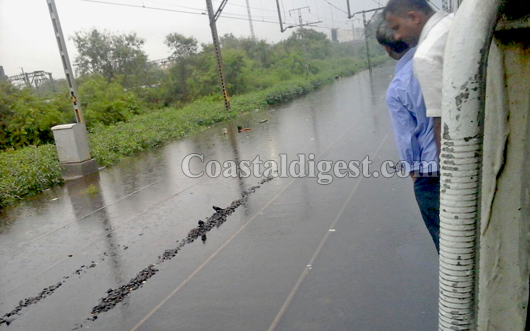





Comments
Add new comment